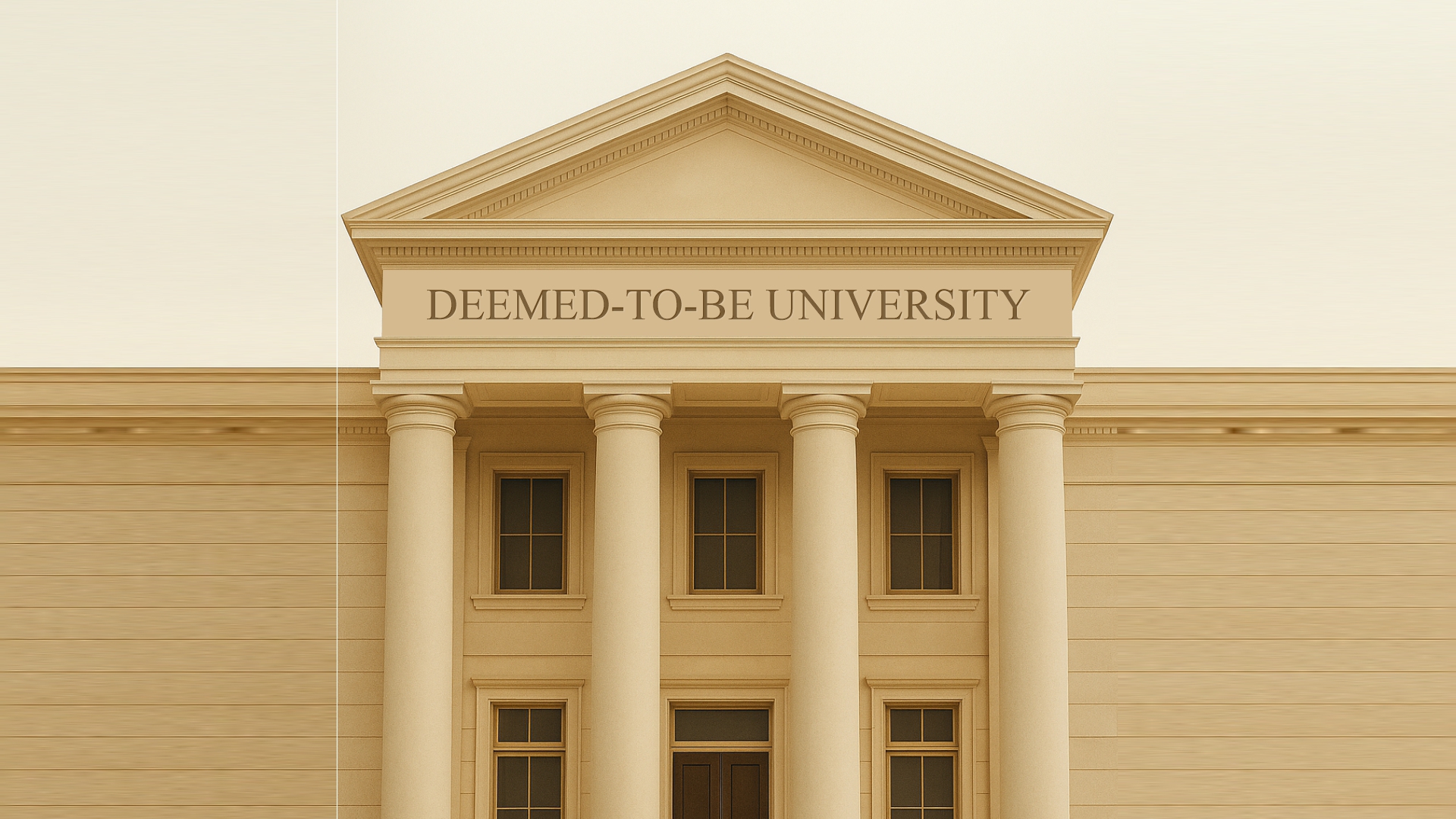
Establishing a Deemed-to-be University: A Comprehensive Guide for Existing and New Institutions under UGC Regulations, 2023
The University Grants Commission (Institutions Deemed to be Universities) Regulations, 2023 has provided a structured and transparent process for higher education institutions (HEIs) to apply for Deemed-to-be University (DTBU) status.
This article outlines the complete framework, categorized for both existing institutions and new (greenfield) institutions, highlighting eligibility criteria, documentation, corpus fund requirements, and the procedure involved in attaining DTBU status.
What is a Deemed-to-be University?
A Deemed-to-be University is an academic institution that receives university status under Section 3 of the UGC Act, 1956 through a notification by the Ministry of Education, Government of India, recognizing its academic excellence and institutional capability.
These institutions enjoy the same academic and administrative autonomy as universities but must include the term “Deemed-to-be University” in their official title.
Eligibility Criteria
1. General Category (For Existing Institutions)
To apply under this category, an institution must fulfill the following:
- Multidisciplinary Programs: Minimum of five distinct academic programs (UG, PG, Research).
- Accreditation/Ranking:
- NAAC ‘A’ grade (minimum CGPA of 3.01) for three consecutive cycles, or
- NBA accreditation for two-thirds of eligible technical programs for three cycles, or
- NIRF ranking in Top 100 (overall) or Top 50 (in category) for three consecutive years.
- Faculty & Student Strength:
- Minimum 150 full-time faculty,
- 3,000 students, of which at least 1/5 are PG or research scholars.
- Statutory Approvals: For all existing professional programs (AICTE, BCI, PCI, etc.).
- Infrastructure: Adequate academic and physical infrastructure as per regulatory norms.
2. Distinct Category (For New or Special Institutions)
New (greenfield) or existing institutions that focus on strategic areas such as:
- Preservation of Indian cultural heritage
- Environmental sustainability
- Skill development
- Sports or languages
- Strategic national relevance
Eligibility under this category does not require NAAC/NBA/NIRF rankings.
Corpus Fund Requirement
To demonstrate financial sustainability:
- Institutions not funded by the Government must maintain a Corpus Fund of ₹25 crores, deposited in the name of the proposed Deemed-to-be University.
- This fund must be used solely for institutional development and cannot be withdrawn or used for any other purpose without prior UGC approval.
The application must clearly justify the institution’s distinct academic focus and societal relevance.
Submission Requirements & Key Documents
- Detailed Project Report (DPR) (mandatory for both categories), including:
- 15-year Strategic Vision Plan
- 5-year Rolling Implementation Plan
- Academic, faculty, admissions, ICT, infrastructure, financial and governance plans
- Land ownership proof in the name of the DTBU or its sponsoring body
- Sponsoring Body Profile, including:
- Legal structure (Society/Trust/Section 8 Company)
- Aims, objectives, key academic and administrative personnel
- Undertakings and Affidavits (compliance, corpus fund, asset allocation)
- Financial Statements for the past 3 years (for existing institutions)
Application Procedure and Timeline
| Step | Details |
| 1. Online Submission | Application through UGC’s DTBU portal with all documents and undertakings. |
| 2. Preliminary Scrutiny | UGC reviews application for completeness and eligibility. |
| 3. Expert Committee Visit | A committee visits the institution, verifies infrastructure, and evaluates. |
| 4. Evaluation Report | Submitted to UGC within 30 days post-visit. |
| 5. UGC Recommendation | If positive, forwarded to the Ministry of Education. |
| 6. Government Notification | Central Government issues notification within 30 days of UGC’s advice. |
In Case of Rejection
- If an application is not accepted, the institution receives a formal communication with justified reasons.
- Reapplication can be made after one year, provided the institution has addressed the deficiencies noted in the previous evaluation.
Expansion: Off-Campus & Off-Shore Campuses
Off-Campus Centres (within India)
- Institutions with NAAC ‘A’ grade or Top 100 NIRF ranking may apply to start off-campus centres.
- DTBUs under Distinct Category can apply for off-campus after five years of declaration, subject to meeting criteria.
- Approval from relevant statutory bodies is mandatory.
- Application must be submitted through the UGC portal.
Off-Shore Campuses (outside India)
- Requires prior approval from the Central Government.
- Must comply with the UGC Act and other applicable regulations.
Conclusion
Achieving Deemed-to-be University status is a strategic leap for any higher education institution aiming to scale its academic impact, research capabilities, and governance autonomy.
Whether you are an established institution or planning a visionary new university with a distinct purpose, careful planning, regulatory understanding, and phased execution are essential.
Need Professional Support?
At Eduprogress and Research Pvt. Ltd., we specialize in:
- DPR Preparation aligned with UGC guidelines
- Eligibility assessment (General or Distinct category)
- End-to-end application and documentation support
- Advisory during UGC visits and committee interactions
